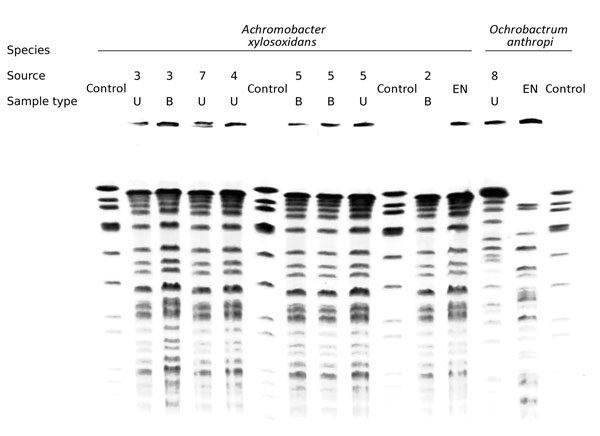Volume 22, Number 8—August 2016
Research
Outbreak of Achromobacter xylosoxidans and Ochrobactrum anthropi Infections after Prostate Biopsies, France, 2014
Figure 2

Figure 2. Pulsed-field gel electrophoresis of clinical and environmental strains of Achromobacter xylosoxidans and Ochrobactrum anthropi infections in patients after undergoing prostate biopsies at Hôpital Édouard Herriot, Lyon, France. Patient numbers match those in Table 1. EN, environmental; B, blood; U, urine; control, reference sample for calibration (described in Methods).
Page created: July 15, 2016
Page updated: July 15, 2016
Page reviewed: July 15, 2016
The conclusions, findings, and opinions expressed by authors contributing to this journal do not necessarily reflect the official position of the U.S. Department of Health and Human Services, the Public Health Service, the Centers for Disease Control and Prevention, or the authors' affiliated institutions. Use of trade names is for identification only and does not imply endorsement by any of the groups named above.